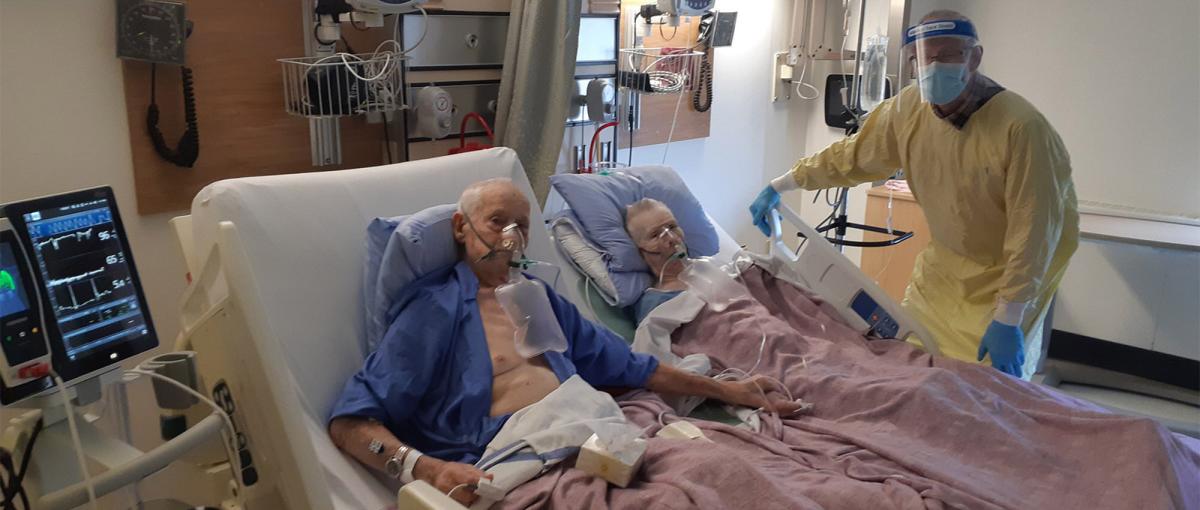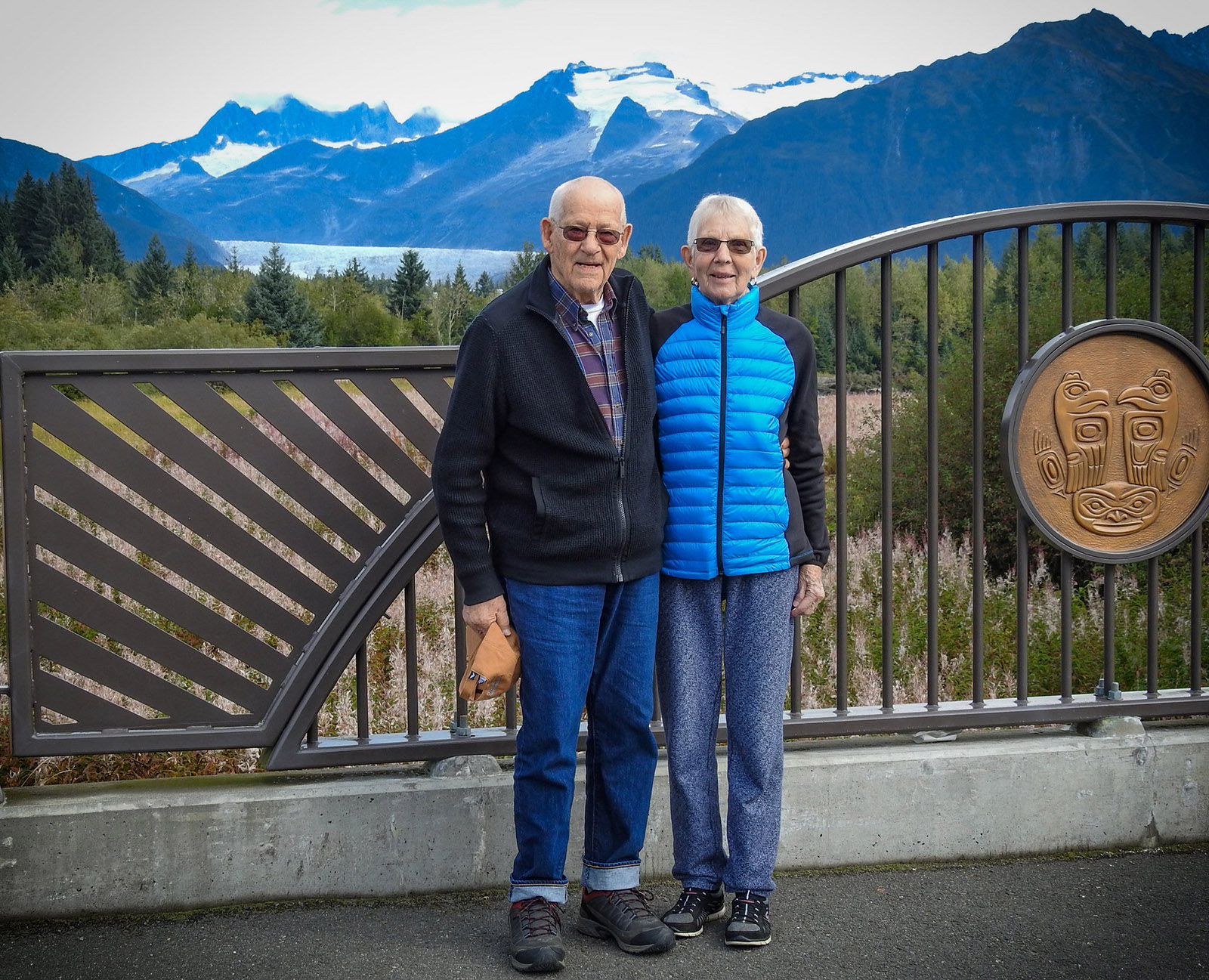Saying goodbye
Couple married 65 years brought together in COVID-19 unit at Grey Nuns hospital

June 2, 2022
By Shelly Decker, Storytelling and Social Media Manager, Covenant Health
One final time, Dwayne and Greta Roth held hands.
The couple, married 65 years and both 87 years of age, had contracted COVID-19, and Greta, a former nurse, was gravely ill.
“They were actually supposed to get their first COVID shot on the Friday. It was Friday morning that Dad went into the hospital,” recalls their son, Doug Roth, who grew up with his four siblings in the Camrose area.
Dwayne, who had fallen a few times at home, tested positive for COVID-19 when he was admitted to the Grey Nuns Community Hospital for his injuries in early March 2021. Greta managed to get her first shot, but it was too late. Within a few days, she was admitted to the Grey Nuns hospital. Her husband was upstairs on a COVID-19 unit. They were in the same hospital but separated.
Hospital staff were aware that Greta’s husband was upstairs and that she was very ill. Since both of them had COVID-19, the teams collaborated to unite the couple.
“The whole situation was just heartbreaking,” recalls RN Jenn Kelly, an assistant head nurse,
“The bed managers, the emergency department, management, housekeeping, basically every area of the hospital that had a hand to play in this, we all had the same goal, which was to get her up to be in the same room with him as quickly as we possibly could, so everyone was working together to make it happen,” says Jenn, who works on unit 44, which at the time had been transformed from internal medicine into a COVID-19 unit to meet patient needs.
There were many tasks to make the move happen, including carefully moving another patient currently in Dwayne’s room to another empty space, cleaning the room and then carefully transferring Greta upstairs.
“We made sure we could have the beds right up against each other so they could be as close as possible. I think it’s what everyone would hope for,” says Jenn.
Doug was there when his mom was wheeled into the room.
“When they brought her in, she leaned over, and she looked at Dad, and she squeezed his hand. She was aware what was going on. She couldn’t speak, and her breathing was sporadic and shallow, but she definitely knew that she was in bed beside Dad,” he says.
And his dad, who would live for 11 more days before dying on March 21, was happy to see his wife. He knew she was very sick.
“When they wheeled Mom into his room, he sat up. He went from being a little bit lethargic to opening his eyes and sitting up. He was really glad to see Mom come up,” says Doug.
His mom was struggling to breathe. The two of them held hands for more than 40 minutes. And then she was gone.
“She took her final breath, and I said to Dad, ‘I think Mom’s passed. She’s taken her last breath.’ And he looked over, and he had a tear in his eye, too. So we had a good cry, Dad and I. But I really appreciate what the hospital did to bring Mom up into Dad’s room so they could be together in the end. I know that was very special for Dad, and it certainly was for me, too.”
Dwayne, a retired electrician, never returned home.
Jenn says the team was grateful the couple were able to spend time together at the end.
“When someone’s dying, there’s not a lot we can do. You feel powerless, but this was something we could do,” she says. “I hope it brought comfort to them. I do think it brought comfort to everyone on the unit. When we got them together on the unit, we all let our breaths out and said, ‘OK, we did it.’ We have felt powerless through a lot of COVID because a lot of times the patients were so sick when they came to us that there wasn’t much we could do for them.”
Throughout the pandemic, there have been other families who had multiple members with COVID-19 who needed hospital care. Jenn remembers a mom and her adult son who were placed together in a room.
COVID-19 is still part of healthcare workers’ lives, she says.
A nurse for 16 years, Jenn says the pandemic has changed her life. “Going forward, I’m not taking anything for granted, and I realize that as hard as COVID has been on me personally, it’s been a lot harder on a lot of other people.”
She says she’s proud to be part of a team that seeks ways to provide compassionate care.
“We will always do whatever is in our power to do to make people more comfortable in their hard moments. Every patient we get, whether it’s COVID or something else, patients are coming in, and they’re having their worst moments of their lives, and if there’s anything we can do to make that better that we are able to do, then we will do it.”

Dwayne and Greta Roth were married 65 years and had five children.